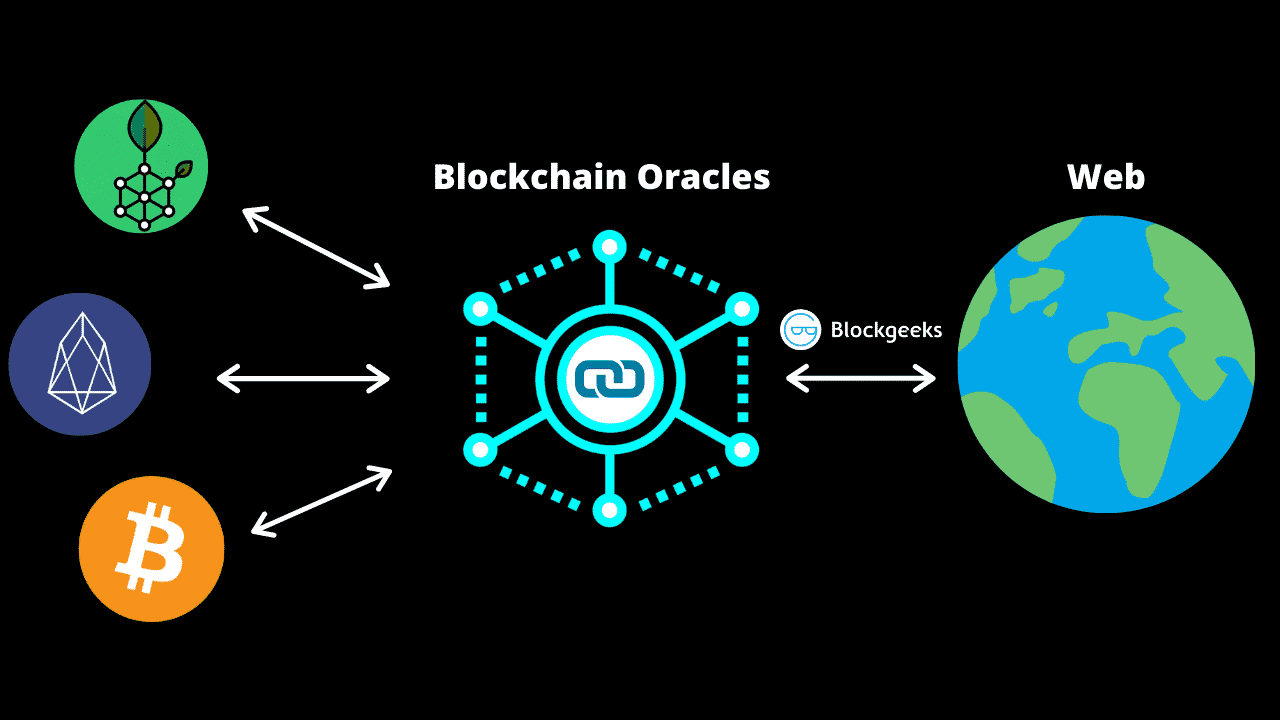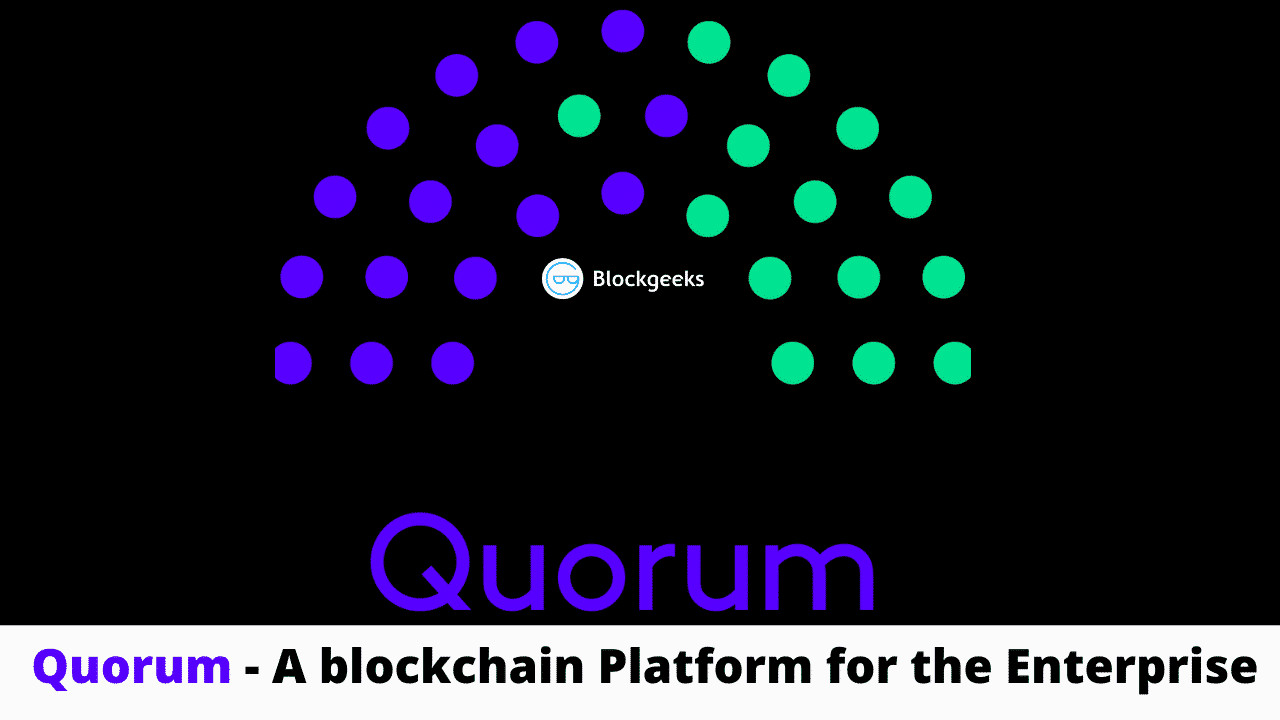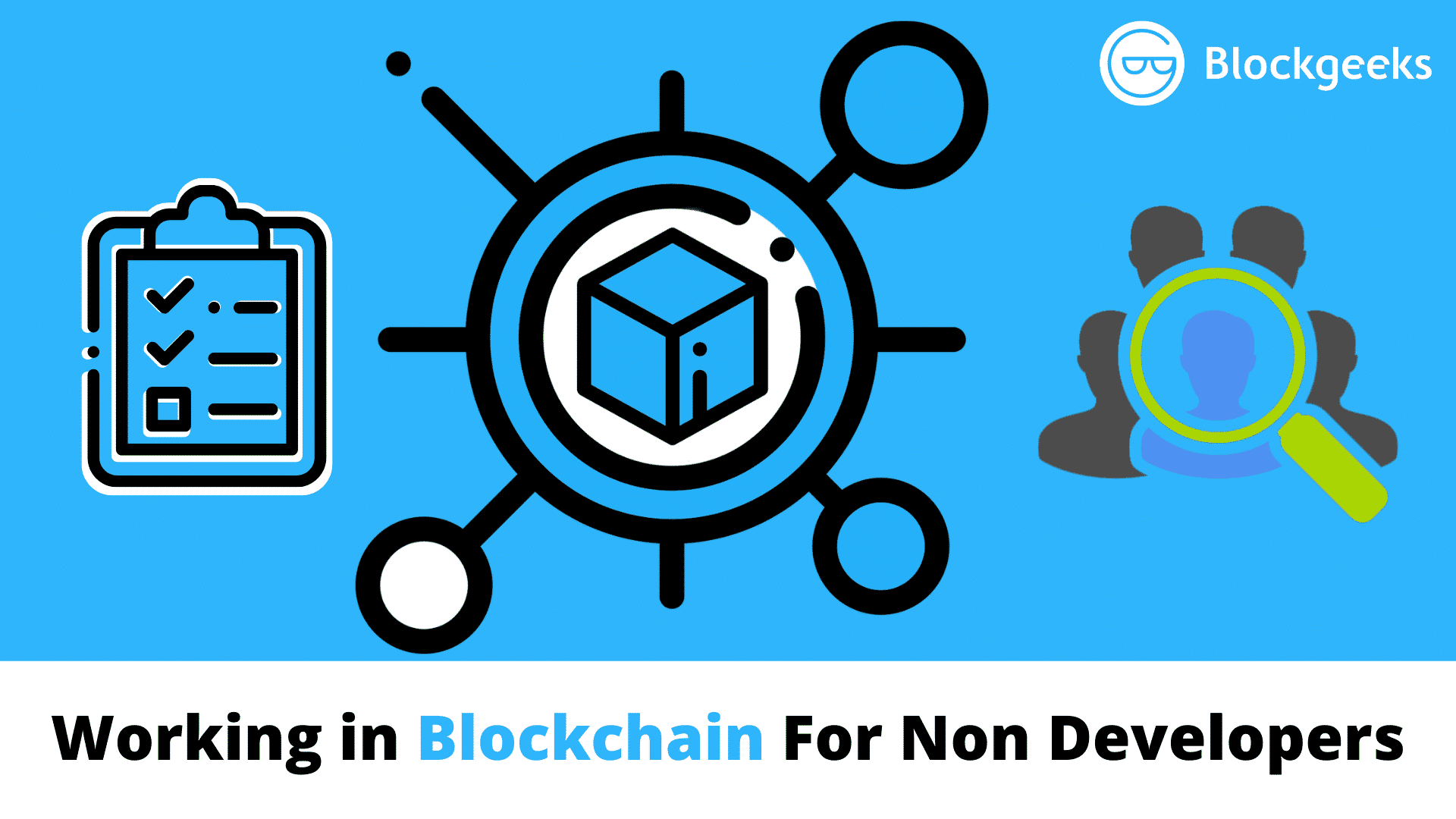Contents
|
|
This guide teaches you the importance of understanding blockchain technology and how it can optimize your business with Blockchain Education.
Reading TIme: 12 mins
Blockchain Technology is the most promising technology of the 21st century. Many have compared the blockchain technology’s potential significance to that of the internet. Now, those are some lofty words, but to understand why it has so much potential, let’s understand the differences between vertical and horizontal innovation.

Contents
The True Importance of Blockchain Education
Vertical innovation is innovation that is done specifically in a particular field while horizontal innovation is something that can be adopted by everyone. Let’s take an example to make this clearer.
Penicillin, Polio vaccine, and sophisticated operating methods are all examples of vertical innovations since they are specific only to a particular field i.e. the healthcare industry.
Electricity, Internet, and Cloud Computing, on the other hand, are horizontal innovations which have been adopted by multiples fields and industries to make their functionality more efficient.
So, to summarize:

Blockchain: The Next Horizontal Innovation
We have talked about Blockchain basics a lot of times on this site before. So, to give you an extremely short description. A blockchain is, in the simplest of terms, a time-stamped series of immutable record of data that is managed by a cluster of computers not owned by any single entity. Each of these blocks of data (i.e. block) are secured and bound to each other using cryptographic principles (i.e. chain).
The reason why the blockchain has gained so much admiration is that:
- It is not owned by a single entity, hence it is decentralized
- The data is cryptographically stored inside
- The blockchain is immutable, so no one can tamper with the data that is inside the blockchain
- The blockchain is transparent so one can track the data if they want to
Blockchain and Decentralization
In order to understand why the concept of decentralization and running a trustless system is important, you need to understand the relationship that we humans have had with trust since the beginning of time.
Early cavemen learned the importance of trusting each other. It was literally a matter of life and death. A caveman by himself had 0 chance of surviving. Think of all the elements in the nature that could have killed them, from wild beasts to changes in the weather. Humans had to learn how to live in communities with people that they can trust, just to survive.
As time moved on, you could see this trust evolve in a lot of interesting ways.
Firstly, we had the barter system, wherein people trusted each other to give them a product of value to exchange with theirs in order to carry out transactions. However, as time went on, our transaction system became infinitely more complex.
Our population exploded thanks to improved medical care in a large part and our businesses became a lot more complex. As a result, we moved from trusting an individual, to trusting a centralized institute, like a bank. However, as time grew, these banks became more and more powerful.
With the number of responsibilities that these banks were dealing with a point had to come where they were going to fail so badly, that people would have to look for an alternative financial system.
This point came in 2008 financial collapse. Many banks, and Lehman Brothers, in particular, were guilty of excessive risk-taking which plunged the whole planet into the worst recession since the 1930s Great Depression.
Disillusioned by the centralized banking system, an anonymous person(s) named Satoshi Nakamoto came up with the idea of Bitcoin. Bitcoin was the world’ first decentralized cryptocurrency which was powered by the blockchain technology.
So, how is the blockchain decentralized?
It really is a pretty simple concept. All the records that are stored within the blockchain, isn’t saved inside one centralized storage unit. There are multiple computers running within the network who own a copy of all the data in the blockchain. This is why, whenever anything is updated in the blockchain, all the nodes in the network get notified of this at once.
This is what we mean by decentralization. There is no single source who is in charge of all the data anymore.
Ok, so what have we learned so far?
- Horizontal innovations are hard to come by. Blockchain Technology may very well be the next great horizontal innovation
- Blockchain’s biggest property is decentralization which can disrupt a lot of industries.
So, let’s look at some of the industries that the blockchain technology can disrupt for good:
- Healthcare industry
- Supply chain management
- Finance industry
- Real Estate
- Legal Industry
- Security
- Charity
This is just a mere handful. We need to wait for at least 3 more years to see the full extent of the Blockchain’s
Blockchain Education:Why Should Companies Care?

#1 To Not Be Left Behind
Simple answer, they don’t have any choice.
To understand why it is crucial for companies to keep pace with modern technology, let us give you the example of Kodak.
What you see above is the fall in the stock value of Kodak over the last few years.
For a long period of time, Kodak owned the photography industry. The term “your Kodak moment” became synonymous with photography. The reason why they fell so far behind, is because they simply blew their chance to lead the digital photography revolution as they were in denial for too long.
Steve Sasson, the Kodak engineer, actually invented the first digital camera back in 1975. “But it was filmless photography, so management’s reaction was, ‘that’s cute—but don’t tell anyone about it,” says Sasson.
In other words, in their hubris, Kodak failed to see digital photography as a disruptive technology.
A former vice-president of Kodak Don Strickland says:
“We developed the world’s first consumer digital camera but we could not get approval to launch or sell it because of fear of the effects on the film market.”
The management was so focused on the film success that they missed the digital revolution after starting it. Kodak filed for bankruptcy in 2012.
However, having said that, they are trying to incorporate the blockchain technology, so we need to see how that goes.
#2 Upcoming Interoperability
We are on the verge of entering the era of third-generation blockchains. Blockchains like Cardano, ICON, AION identify as third-generation. One of their most fundamental goals is achieving interoperability.
What is interoperability? In layman’s terms, it will enable interaction among various blockchains AND legacy companies.
That sounds pretty cool, but what does that have to do with universities?
Interoperability will enable more and more companies to incorporate and interact with blockchain companies. As such, they will be looking to hire people who have some basic blockchain knowledge.
Now, since there is a lack of such talent available right now, they will need to start educating their current workforce in the ins and outs of the blockchain technology. This will make sure that they are not losing any ground.
#3 Upskilling vs Hiring
The data that we are going to show you in this section comes from this report made by McKinsey Global Institute. This report, once and for all, puts the upskilling vs hiring debate to rest. For a company, it is much more economically efficient to upskill their existing employees, rather than hiring new ones.
Apparently, 375 million workers which are roughly 14 percent of the global workforce, may need to switch occupational categories as “digitization, automation, and advances in artificial intelligence disrupt the world of work.” So, the kind of skills that these companies will require will dramatically shift.
According to the report, the magnitude of this change is “akin to coping with the large-scale shift from agricultural work to manufacturing that occurred in the early 20th century in North America and Europe, and more recently in China”.
So, with change right around the corner, several companies have identified retraining and upskilling their existing workforce as an urgent priority. Not only that, but they also realize that corporations, and not the government, need to take a stand here.
They conducted a survey with 00 executives at companies with more than $100 million in annual revenues and among this group, they realize that 66 percent see “addressing potential skills gaps related to automation/digitization” within their workforces as at least a “top-ten priority.” Nearly 30 percent put it in the top five.
Let’s look at some of the results of the survey. Up first we go this:

So, overall, 66% of the companies around the world feel that addressing the potential skill gaps is at least a top 10 priority, with 27% believing that it is a top 5 priority if not more.
Seventy percent of executives at companies with more than $500 million in annual revenues see technological disruption over the next five years affecting more than a quarter of their workers.
Let’s take a look at another survey:

Now we see that overall, only 18% of the companies feel like hiring is the only way to go forward, while an overwhelming 41% feel that only retraining is the way to go.
So, if you really think about it, the surveys clearly show that companies feel like re-training their employees is the way to go forward in the upcoming digital age. Keeping this in mind, and knowing how important blockchain is going to be, it is in the company’s best interest to stay on top of blockchain education and make sure that their employees are getting the required certification.
#4 Enterprises/Corporations Need to Take Charge
There was another interesting question that was asked in the McKinsey survey.

What does the survey above tell you?
At least 58% of the people polled believe that enterprises need to take charge in addressing these skill gaps. Not the federal government, not the state government, not even education institutes. It needs to be enterprises. That is the only way to go forward.
Ok, so far we have talked about institutes educating themselves on the blockchain, what about individuals?
Why Should You Educate Yourself on Blockchain Technology?
Currently, there is a huge demand out there for blockchain-related jobs but then why should you join the party? What is in it for you to become a part of this crazy world?
Well, turns out that a career in the blockchain world comes with its own set of perks as well.
#1 Lots of Money In The Space
There is a lot of money in the crypto space because of a variety of reasons. Firstly, we have institutes set up by folks who were early investors and hence made humongous ROI in their investments. Plus, we also have startups who have raised ridiculous amounts of money from various ICOs. ICOs have become an extremely controversial topic enabling companies to raise millions of dollars within 24 hours a product!

Look at the graph above.
ICOs have already raised twice the amount of money they did in the entirety of 2017, in the first five months of 2018 alone! Also let’s not forget that more and more institutional investors have entered the space to fund these projects as well.
So, what does all this mean?
We have a young field, which needs more manpower, however, there aren’t a lot of people out there who have the required skill sets and knowledge base. As a result, because of the demand, the salaries given out are usually extremely attractive.

In fact, according to a study done by angel.co, the payout given for technical and non-technical roles are both higher in the technical category and the non-technical category.
Plus, it is also worth noting that the profit sharing models in crypto jobs are way better and the incentives a lot higher.
#2 Remote Flexibility
According to a research done by J.P. Dowell, who has spent 15 years studying why people hate their jobs, 70% of the people studied said that they are not fulfilled career wise. So, what is the reason for this unhappiness?
Well, according to another study done by Softchoice, they found out the following two facts:
- 74% of employees saying they would quit their jobs to work for an organization that would allow them to work remotely more often, even if their salary stayed the same.
- Compared to Baby Boomers, millennials are twice as likely to feel more productive and better-equipped working at home than at the office.
Also, according to this report by CNBC,
“more than two-thirds of people around the world work away from the office at least once every week, according to researchers.”
Remote jobs are advantageous for both employees and employers.
For employees it:
- Increases efficiency and productivity
- Decreases stress and increases overall happiness
For employers it:
- Helps save up on office real estate prices
- Reduces the overall employee turnover
This is another area where crypto companies outdo their legacy peers. Plus, remember that crypto companies are far more likely to give you the “work from home” option and require you to come to work only on specific days.

#3 Employee Liquidity
This is a perk which is limited to token companies. Usually, at a startup, employees receive equity and have to wait for a liquidity event to sell shares and get Fiat currency. This may itself be a very complex process and in many scenarios, grants given by companies are very restrictive which blocks secondary transactions.
In blockchain companies, employees usually get tokens which acts as an equity-like compensation. These tokens, unlike shares, are inherently liquid, even though some of them may still have restrictions on them.
So, now that you know why you should look for a career in the blockchain space, let’s see exactly what you can do.
#4 Being Part of Something Revolutionary
There is no doubt about the fact that blockchain technology is revolutionary. We finally have a system where an asset isn’t owned by a single person/entity and the entire system is transparent(if needed) and untamperable. There is a big chance that the blockchain will be as revolutionary as the internet in the future. So, keeping that in mind, don’t you want to be part of something this revolutionary?
Ok, so far here is what we know:
- Enterprises need to take charge of the increasing skill gaps
- Individuals can heavily benefit from learning about the blockchain technology.
Here comes the bad news. Remember the McKinsey survey that we were discussing a little earlier? According to it,
“only 16% of private-sector business leaders in this group feel “very prepared” to address potential skills gaps, with roughly twice as many feeling either “somewhat unprepared” or “very unprepared.” The majority felt “somewhat prepared”—hardly a clarion call of confidence.”
So, in enterprises no that they need to get into blockchain education, but they don’t know where to get it.
Which brings us to the next question.
Blockchain Education: How to Get It?
So, how exactly can you get into blockchain education? If you are looking for a full-blown degree then you can look into the following universities that offer courses on Blockchain Technology:
- Stanford University
- Duke University
- Georgetown University
- MIT
- Berkeley
- Cornell University
- New York University (NYU)
- Princeton University
- RMIT University
- The University of Illinois
Now the fact is, that the companies can’t simply send out their employees to get university degrees right? No one will actively send out their people to get 2-3 year degrees. This is where certification comes in.
There are plenty of advantages that certification has over degrees:
- Shorter: An average certification course may last from anywhere around 6 months to 2 years. In some cases, it can be even shorter than that. A degree, on the other hand, will last minimum 2 years.
- Easily available: Most certifications are easily available online and can be done at your own time, pace, and location. However degrees may require you to join classes, and follow the universities schedule.
- More focused: Certifications are more subject centric than degrees. Eg. if you are doing a certification on C++ programming then you are just going to learn C++. However, if you are doing a degree in Computer Science then you may even need to take up Environmental Studies or Mathematics for a semester.
- Cheaper: Obviously since certifications last for a shorter time, they are a lot cheaper than degrees.
- Less age restrictive: Usually college going students or people in their late teens to mid 20’s opt for degrees. However, people from all walks of life and age groups apply for certification because of the flexibility it provides schedule and location wise.
According to The Washington Post, the number of people who hold post-baccalaureate certificates has increased significantly. Here are some of the numbers:
- Nearly 51,000 people earned the credential in 2010, a 46 percent increase in five years.
- For men, having certification adds a 25% to their income.
- For women, it is a 13% addition to their income, but that’s mostly because they are in less technical fields.
- According to research from Georgetown University’s Center on Education and the Workforce, about 3 percent of the workforce i.e. 4 million workers have certificates.
So, where exactly can you get these certified courses? Well, we have got that handled for you!
Blockgeeks for Your Business
Businesses and organizations of all sizes can use our enterprise course to provide effective, on-demand technical blockchain training to their teams. With engaging, interactive content and customizable learning tracks, we can build you a results-driven training program tailored to your specific goals.
Blockgeeks’ curriculum is built in collaboration with the world’s most innovative organizations. Working with over 100 global companies, Blockgeeks offerings promote fluency in critical technical areas such as Data Sciences, Blockchain, and Cybersecurity.
Here are some of the features/advantages of our course:
- Course curriculum built with industry leaders, for industry leaders
- Managed end-to-end solution
- Real-world hands-on projects
- Project reviews and feedback from industry SMEs?
- Massive savings by re-skilling vs hiring new talent
Here is what people have been saying about us.

Conclusion: Blockchain Education
Regardless of what you think about the blockchain technology, the fact remains that it is one of the most disruptive technologies of this era. You need to get along with the program, or you will be left behind. We have curated the best blockchain certification course that is specifically targeted towards people working in enterprises. We believe that the course will definitely give your career a huge boost. So, do not miss out.
Click on the link here and join our family!







![Blockchain Government Use cases - [Algorand, ICON, Power Ledger, and RSK]](https://blockgeeks.com/wp-content/uploads/2020/04/Blockchain-Government-Use-cases-Algorand-ICON-Power-Ledger-and-RSK.png)
